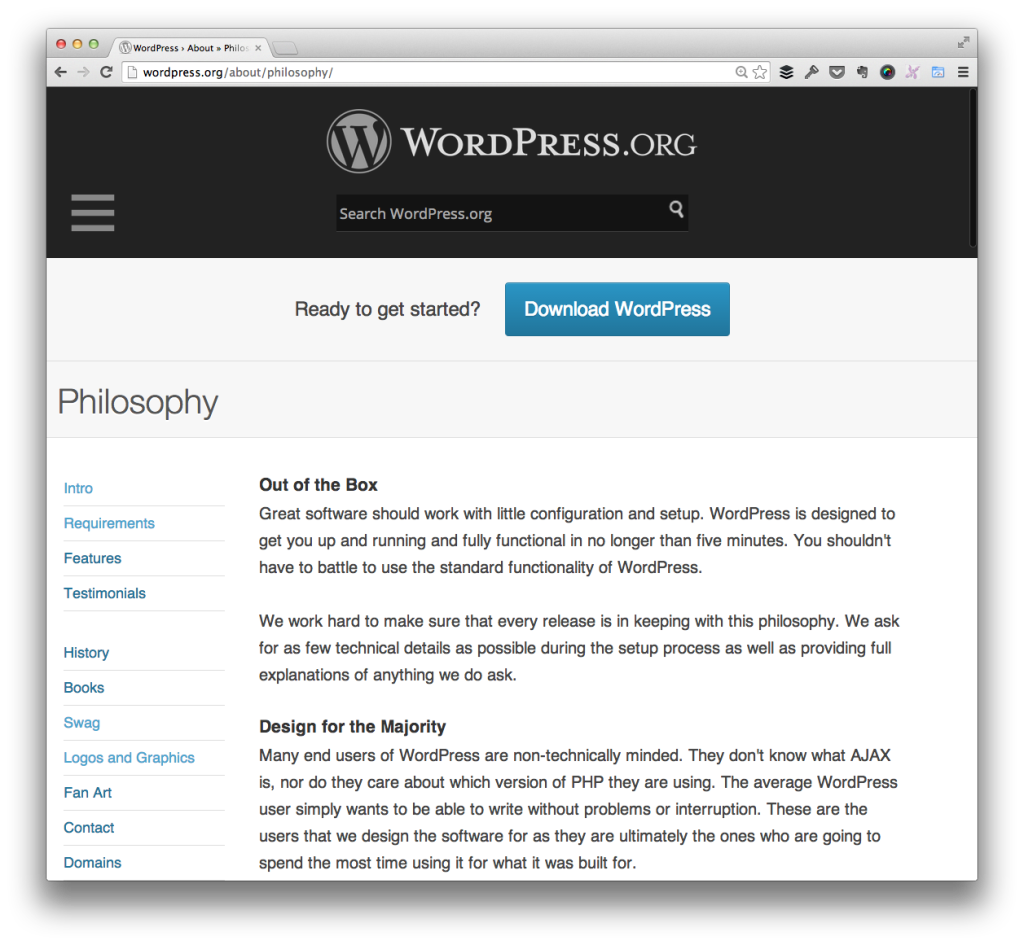Over the last week or so, I’ve been writing about the various pillars of the WordPress Philosophy.
These include:
- Out of the Box
- Design for the Majority
- Decisions, Not Options
- Clean, Lean, and Mean
- Striving for Simplicity
- Deadlines Are Not Arbitrary
- The Vocal Minority
And today, I finally finish up with the Bill of Rights.

Ultimately, I’ve been looking at how I believe that the majority of us who are involved in driving the WordPress economy in some way have been ignoring these core tenants.
This isn’t to say that we’re all doing it, and this isn’t to say that they’re all being ignored, but I do believe that there are some significant issues that are happening within the WordPress product space that need solutions.
This isn’t to say that I have it figured out – hardly so – but I do believe that one of the things that many of us need to do is to begin forcing segmentation in the market based on how we price, support, and offer our products.
The final aspect of the philosophy to cover is that of the WordPress Bill of Rights. I almost opted not to write about this particular part because it’s directly influenced by the GPL which always has been, and always will be a fire starter of sorts for the WordPress economy.
Even still, it’s part of the philosophy and should be included.
